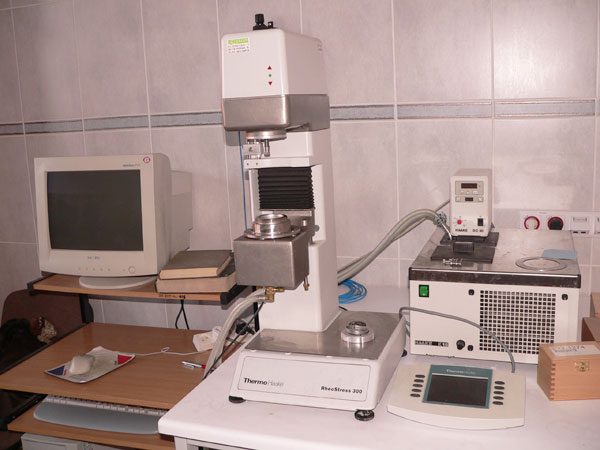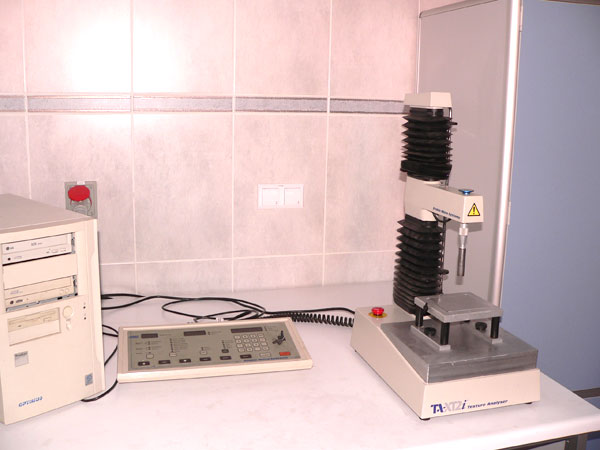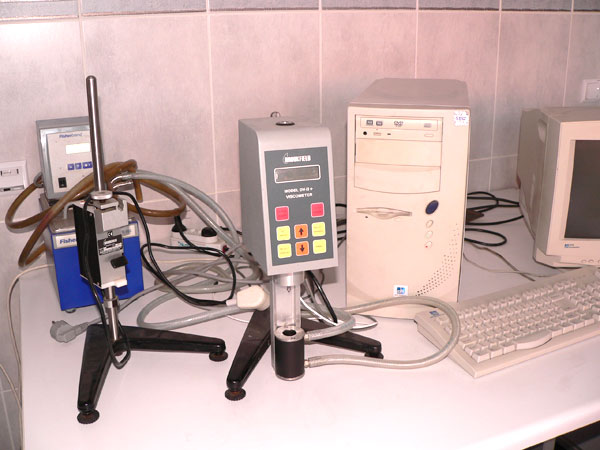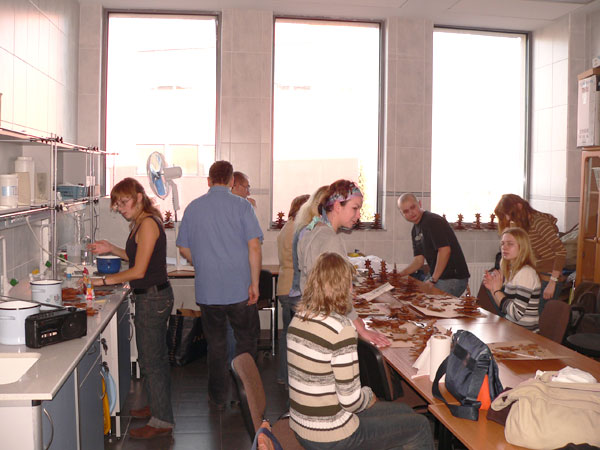
Sub-department of Dairy Technology and Functional Food
- UP
- Faculty of Food Science and Biotechnology
- About Faculty
- Didactic units
- Deptartment of Animal Food Technology
- Sub-department of Dairy Technology and Functional Food
Research topics:
- functional properties of proteins and polysaccharides (viscosity, gelation, foaming),
- rheological analysis of dairy products, especially butters, spreads, margarines, polysaccharide-protein gels, yoghurts and cheese analogues,
- texture analysis of foods,
- obtaining and properties of processed cheese analogs, imitation cheeses with proteins and polysaccharides,
- technology of desserts, yoghurts and spreads,
- developing new dietary formulas for sportsmen,
- chemical analysis of toxic metals, nitrate and nitrite in fruits and vegetables.
Achievements:
- Development of methods for obtaining polymer/whey protein aggregates, which can be used as substances for increasing the viscosity. This method has been patented in the U.S. (three patents).
- Development of technology for the production of processed cheese analogues with the addition of whey proteins or their polymers.
- Development of technology for the production of milk desserts without the polysaccharide thickeners and gelling agents.
- Development of methods to improve the properties of cheese using transglutaminase.
- The discovery of different interactions between proteins and saccharides and their effect on the functional properties of proteins.
- Developing a new test method for cheese melting analysis.
- Development of a novel method for obtaining the aerated gels from whey protein.
- Development of technology for dairy desserts production using the phenomenon of gel structure inversion after its destruction.
-
Our research equipment
 Dynamic Rheometer Haake RS300 www.thermo.com
Dynamic Rheometer Haake RS300 www.thermo.com  Texture Analyser TA-XT2i (Stable Micro Systems) www.stablemicrosystems.com/
Texture Analyser TA-XT2i (Stable Micro Systems) www.stablemicrosystems.com/ Viscometer DV-II + (Brookfield), www.brookfieldengineering.com/
Viscometer DV-II + (Brookfield), www.brookfieldengineering.com/  Mini-PROTEAN 3 Electrophoresis Cell (BioRad Laboratories) www.bio-rad.com/
Mini-PROTEAN 3 Electrophoresis Cell (BioRad Laboratories) www.bio-rad.com/
PROPOSAL FOR THE INDUSTRY
- Performing analysis of different products texture.
- Performing rheological characteristics of products (viscoelasticity, viscosity, non-newtonian fluids characteristics).
- Selection of thickeners and gelling agents for different food products (dairy, meat and others).
- Influence of different factors on the rheological properties of products (e.g. storage effects, microbiological changes).
- Assessment of functional properties of proteins and polysaccharides preparations (gel, foam properties, increasing viscosity).
- Advice on the use of whey protein formulations to improve the functional and nutritional properties of products.
- Analysis of chemical and physical stability of dietary supplements for athletes and physically active people.
University of Life Sciences in Lublin
13 Akademicka Street, 20-950 Lublin
VATIN 712 010 37 75
REGON no. 000001896
ePUAP: /UP-Lublin/SkrytkaESP
Faculty of Food Science and Biotechnology
8 Skromna Street
20-704 Lublin
Phone no. +48 81 462 33 74
+48 81 462 33 92
Fax. +48 81 462 33 76



